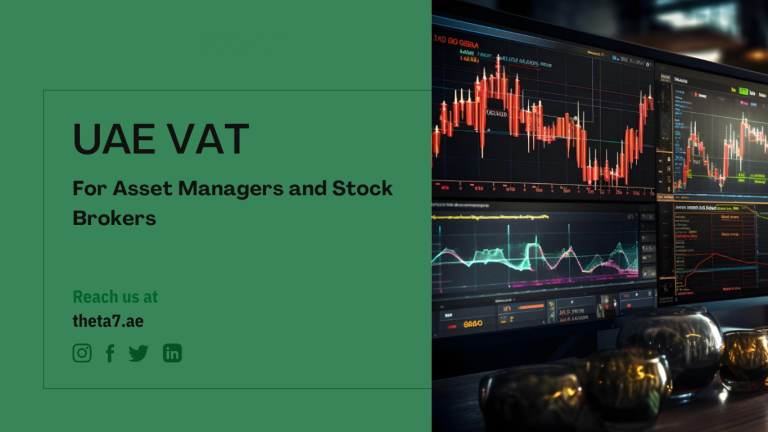
In the United Arab Emirates (UAE), Value Added Tax (VAT) on financial services can vary significantly depending on the nature of the supply and the type of transaction involved. It is crucial for asset managers and stock brokers to understand how different transactions are treated for VAT purposes to ensure compliance and effective financial planning.
Financial services related to the management of investments and custody of assets are typically exempt from VAT. This means that asset managers offering such services do not charge VAT on these activities, nor are they required to pay VAT on them.
When banks or other financial institutions, regulated by the UAE Central Bank, pay interest on deposits, these transactions fall under the category of exempt financial services. This applies whether the interest payments are made to individuals or businesses, and no VAT is applicable.
Any financial products or services where there is a clear and identifiable fee, commission, rebate, or discount involved are generally classified as exempt from VAT. For instance, a stock broker charging a commission for trading services would not apply VAT to that commission.
Foreign exchange transactions and the income derived from the spread (the difference between the buying and selling rates of currencies) are also typically regarded as exempt from VAT. These activities fall under exempt financial services as they are considered core financial transactions that do not attract VAT.
Understanding the VAT treatment of these key areas is essential for both asset managers and stock brokers operating within the UAE, as incorrect application of VAT can lead to compliance issues and potential penalties. Staying informed and seeking professional tax advice where necessary can help ensure that VAT obligations are properly managed.
Ensure VAT compliance and optimize your financial strategy with expert guidance tailored for asset managers and stock brokers in the UAE—Contact Us Today.

